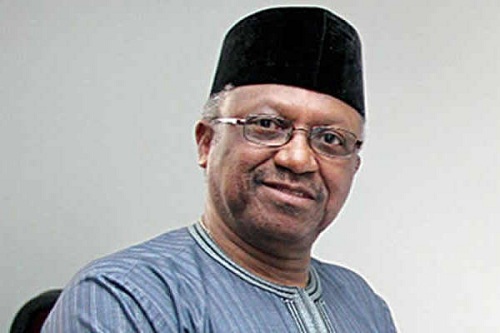Rebecca Ejifoma, who takes a look at the nation’s healthcare system, writes that it survived the unending challenges that ravaged it and attained universal health coverage for her citizens, as well as wound down on COVID-19 infections. However, incessant strike actions and brain drain on the sector happened in torrents this year, thus weakening an already feeble institution
Nigerians – both medical professionals and the end receivers – have had it not-so-good in the healthcare system in the last year. This is courtesy of the many hiccups that overwhelmed, overstretched and endangered its feeble status. They range from the most popular emerging and re-emerging disease outbreaks to the most trending internal issues.
Among them are the COVID-19 Pandemic, Yellow Fever, brain drain, financial incentives and poor salaries, inadequate allocation of funds, shortage of protective equipment for health workers and obsolete infrastructure and incessant strikes. This paved the way for burnout, stress, and the weakening of the already overworked healthcare system.
COVID-19 Pandemic in Nigeria
Everyone, except for children, is conversant with the warnings that if symptoms persist after three days consult your doctor. But this didn’t apply to COVID-19. When it unleashed its terror in 2020, it came prepared. For two years it proved adamant and got the healthcare sector on her toes. For the first time in a long while, the governments at all levels put an ear to the ground for last-minute magic like the Nigerian football team.
According to research, COVID-19 took the world by storm. It overwhelmed the nation’s healthcare facilities and solely gripped the attention of the health system, thereby forsaking all other chronic ailments and healthcare services like childbirth and antenatal among others. This was to halt any form of transmission.
More so, several hospitals were shut down, the weak facilities were over-stressed and burdened, and the frontline workers experienced a more demanding schedule. Consequently, the Nigerian government estimated that it would need $330 million to control the COVID‐19 pandemic. However, it was said to have raised over $560.52 million.
Brain Drain in Nigeria’s Healthcare System
Nigerians have experienced a dearth of skilled workforce over the years because they leave in droves. These skilled personnel include doctors, nurses, medical laboratory practitioners, pharmacists and allied personnel amongst others.
According the President of the National Association of Nigerian Nurses and Midwives (NANNW), Michael Nnachi bemoaned that 57,000 nurses migrated from Nigeria between 2017 and 2022. And with the recent trend of mass emigration of her skilled personnel to developed nations and plans underway by others owing to juicy offers abroad, Nnachi describes the situation as a national emergency that needs dire attention.
Even the Nigerian Medical Association (NMA) lamented that 34,000 doctors served about 180 million people in the country in 2015. Sadly this year, the number cascaded to 10,000 doctors for the over 200 million population as noted by the Nigerian Association of Resident Doctors (NARD). This is a far cry from the recommendation of the World Health Organisation (WHO) which stated that every nation should have one doctor to 600 people.
A 2022 UK immigration report shows that 13,609 Nigerian healthcare workers including doctors were granted working visas in the past year. This leaves Nigeria as the second from India leading with 42,966, a pitiful reality that is starving the nation’s health sector.
Yellow Fever in Nigeria
Through bites from infected mosquitos, Nigeria recorded 14 deaths from yellow fever between January and July this year. States affected include Abia, Bayelsa (one), Benue, Imo, Kaduna, Katsina, Kebbi, Taraba, Yobe and Zamfara were hit by yellow fever among others where it has penetrated. This is according to the Nigeria Centre for Disease Control and Prevention (NCDC).
Meanwhile, with sojourners touring various African countries, little wonder the recent estimation by the WHO Africa Region which shows that over 160 million people are at risk of contracting yellow fever in Nigeria. Lately, the yellow fever virus has become a serious epidemic in the country, further stretching healthcare professionals.
Poor Salaries, Zero Incentives
When the nation’s healthcare professionals resolved to seek greener pastures in developed nations one of the reasons propelling the dearth of personnel include poor financial incentives, meagre salaries and welfare packages.
Sadly, the Minister of Health, Dr Osagie Ehanire, revealed that Nigeria loses $2 billion annually to medical tourism, a figure higher than Nigeria’s total health expenditure in 2022. He decried that these challenges have contributed to health professionals in Nigeria losing faith in the government’s ability to grow the sector. As a result, professionals not only leave to seek succour abroad, but her citizens – taking a cue from her leaders – continue to patronise medical help in foreign nations.
Incessant Strikes Worsen Nation’s Health Status
If doctors aren’t going on indefinite strike today for the backlog of salaries, it will be the health workers that would take to the streets to air their grievances. This singular action has become the bane healthcare system for years. And health practitioners have earnestly called for immediate action to address these issues plaguing the health sector to save what is left.
At the recent maiden edition of the Medical Education Summit (MES) of the Medical and Dental Consultants Association of Nigeria (MDCAN), Prof. Eniola Erekosima advocated for more funding to boost the medical sectors.



